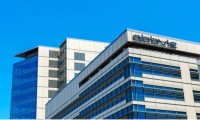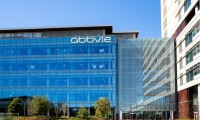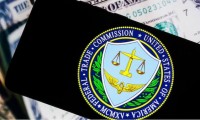-
AbbVie’s full year 2023 sees 6.4% net revenue drop
- Source: drugdu
- 99
- February 10, 2024
-
As Humira plummets, AbbVie dials up Rinvoq and Skyrizi estimates to a combined $27B
- Source: drugdu
- 81
- February 6, 2024
-
AbbVie ends 2023 on a high taking the leading spots as the biggest drug ad spender in December
- Source: drugdu
- 155
- January 10, 2024
-
CVS Caremark to kick AbbVie’s Humira off some formularies in favor of cheaper biosimilars
- Source: drugdu
- 138
- January 6, 2024
-
Inside AbbVie’s $10B buyout of ImmunoGen—and the bidding war it swooped in on
- Source: drugdu
- 179
- January 4, 2024
-
AbbVie Buys ImmunoGen in $10B Deal, Gains Access to ADC for Ovarian Cancer
- Source: drugdu
- 120
- December 4, 2023
-
AbbVie to Acquire ImmunoGen With its Platinum-Resistant Ovarian Cancer Drug Elahere
- Source: drugdu
- 126
- December 4, 2023
-
AbbVie diversifies oncology portfolio with $10.1 bn ImmunoGen acquisition
- Source: drugdu
- 99
- December 2, 2023
-
AbbVie’s epcoritamab gets one step closer to follicular lymphoma approval
- Source: drugdu
- 98
- November 29, 2023
-
AbbVie, AstraZeneca, Boehringer and more face FTC’s ire for ‘improper’ patent listings
- Source: drugdu
- 92
- November 9, 2023
your submission has already been received.
OK
Subscribe
Please enter a valid Email address!
Submit
The most relevant industry news & insight will be sent to you every two weeks.













